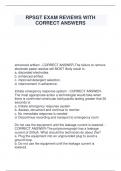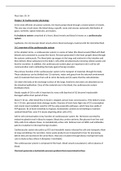Jane F. Gilgun
Introduction
Qualitative approaches have much to offer family psychology. Among the uses for qualitative
methods are theory building, model and hypothesis testing, descriptions of lived
experiences, typologies, items for surveys and measurement tools, and case examples that
answer questions that surveys cannot. Despite the usefulness of these products, issues
related to generalizability, subjectivity, and language, among others, block some researchers
from appreciating the contributions that qualitative methods can make. This article provides
descriptions of procedures that lead to these useful products and discuss alternative ways of
understanding aspects of qualitative approaches that some researchers view as problematic.
Qualitative methods can be used in basic, applied, and evaluation research, but are not
useful for establishing prevalence and incidence. Although they can inform researchers
about the contexts of experiments and quasi-experiments, how and what treatments were
implemented, and participants’ responses to the treatment, they will not yield an effect size
or any other quantified outcome.
There are three ways that qualitative researchers think of data collection and analysis: one is
a naïve empiricism where researchers believe they have set aside their preconceptions and
are doing the analysis inductively. A second is an informed quasi-inductive approach where
researchers recognize that they have preconceptions and attempt to put them aside while
seeking to understand the perspectives of research informants. The third is a deductive
approach that begins with a conceptual framework that helps researchers identify the social
processes and attribute meanings to their texts but that researchers hope to transform
through processes of doing research.
Qualitative researchers focus most often on what it means to be human and the meanings
that human beings attribute to the events in their lives. Issues of reliability and validity are
important but most of them prefer not to use these terms because they connote distance
from meanings and lived experience. Instead, most qualitative researchers use the term
trustworthiness, which requires that researchers demonstrate how they arrived at their
analysis and conclusions.
In general, the products of qualitative research are (a) theory: concepts, hypotheses, and
models; (b) descriptive accounts of lived experience; and (c) close analyses of texts, such as
discourse analysis. The first type of product is usually documented with excerpts from texts
and accompanied by theoretical analysis that shows how related research and theory
enhance the constructs and how the constructs add to, replicate, or transform related
research and theory. Descriptive qualitative research is composed of several types of
research, and documentation can vary by type. Close analyses of texts can take several
forms and demonstrate how the components of a conceptual model work.
The products of qualitative research
Theory building and model testing
Family scholars have a long-term interest in theory building. Qualitative methods can make
unique contributions to the identification, development, testing, refinement, and reformulation
of concepts, hypotheses, and theoretical models of family processes. One approach to
theory building and model testing is deductive qualitative analysis, which begins with a
conceptual model for the purpose of testing it, refining it, or refuting it and coming up with a
better set of concepts and hypotheses. It provides guidelines for doing qualitative research
, that begins with an initial conceptualization that can range from a parsimonious theory to a
rather loose set of ideas. A second approach is grounded theory, which involves entering the
field with an open mind and trusting that a researchable problem will emerge. The goal of
grounded theory is to develop concepts and hypotheses that are linked to data and to build
rather than test theory. To generate grounded theory, researchers enter the field with an
open mind to the emergence of the subjects’ problem, a trust that the central problem will
emerge, and a commitment not to know until the problem emerges. Grounded theory is a far
more detailed set of procedures for doing qualitative research than is deductive qualitative
analysis. Deductive qualitative analysis and grounded theory can contribute to the
refinement and reformulation of existing theory and lead to the creation of new theory in
overlooked areas.
Descriptions of lived experiences
Qualitative researchers in general seek to understand subjective human experience. Open-
ended questions lead to new analyses that can be used in a variety of ways, both theoretical
and applied. Researchers recognize that their findings are representative of the
particularities of their research and they test the fit of their findings in new particular
situations. Oral histories are probably the most descriptive type of qualitative research. Their
purpose is to understand historical events from the points of view of individuals who lived
through them. The texts of oral history interviews are composed primarily of the accounts of
interviewees. The role of interviewers is challenging in that they should be knowledgeable
about the historical events that are the focus, and at the same time they must be relatively
unobtrusive so that interviewees can tell their stories in their own ways.
Interpretive phenomenology focuses on lived experiences and the understanding of persons
within the contexts of families, communities, and institutions such as hospitals and schools.
The emphasis is more on what it means to be a human being and less on explaining and
predicting human phenomena. Ontology - what it means to be human - takes precedence
over epistemology, or concerns about reliability, validity, and universal theory.
Descriptive research lends itself to the development of typologies, a strategy for organizing
findings that show similarities, differences, and overlaps between and within classes of
phenomena. Typologies are particularly helpful in educational and clinical settings, where
practitioners are confronted with complex human behaviors. Often interventions, such as
medication, educational strategies, and forms of therapy, are linked to classifications that
typologies can provide.
Theoretical analyses of texts
Theoretical analysis of texts involves demonstrating a theoretical framework or model
through the use of case material. Some forms of cultural studies involve close analyses of
texts. It is a flexible approach to the analysis of ideologies embedded in language, everyday
interactions, and objects such as clothes, cars, and houses. Researchers in this tradition
often build on lived experience in their quest to critique culturally based power structures in a
wide range of social institutions, such as scouting, the mass media, and families.
Using qualitative methods with surveys and other quantitative approaches
Qualitative approaches can be used in conjunction with surveys and other quantitative
approaches. They produce hypotheses and models that can be tested on large samples,
supply items for surveys and other instruments, and answer questions that surveys,
experiments, and quasi-experiments cannot.



